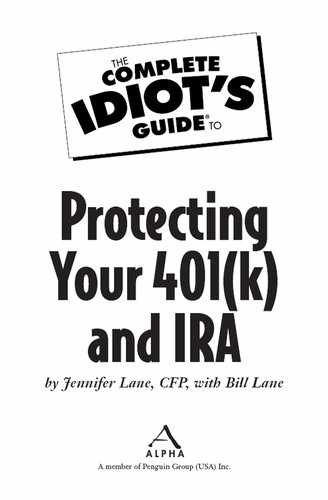Understand Your Account Statements
In painful stock market slumps, individual investors’ first instinct is often to refuse to open their retirement account statements, thinking that the sight of a declining account balance will be too painful. You must remember that month-to-month fluctuations in your investment account balance are normal if your investments include stocks. That’s the nature of stocks themselves: over short periods like a month, a quarter, or even a year, they can lose value. The reason you have stocks as part of your asset allocation is for their growth over the long term and their ability to hedge against long-term inflation. The role of stocks in your portfolio is not to earn you predictable interest or dividends in a particular month.
Keep that in mind when you read your monthly or quarterly account statements. The part of the portfolio that you’ve designated for investments in stocks is for the long term; the part that is allocated to bonds and cash is for use in the nearer future. For example, if you’re getting ready to retire soon, you’re looking to the bonds and cash in your account for income at the start of retirement and then you’ll sell the stocks in later years. The stocks are part of your portfolio, so they will unquestionably affect the bottom line of your account statement; but if you’ve planned your asset allocation carefully, a temporary drop in stock prices shouldn’t affect your financial security.
When you look at your account statements, focus less on the bottom line than the percentage change in the balance. Ask yourself, “Is my portfolio going down as I would expect based on how the market indexes have fared?” For example, if the stock market is down 25 percent for the year and your portfolio holds 60 percent stock, does your stock allocation roughly mirror the overall market’s decline? Look solely at the stock investments in your portfolio. If those investments have declined more dramatically than the most similar stock market index—the Dow Jones Industrial Average, for example, or the S&P 500—it is important that you review the quality of your mutual funds or other portfolio investments. If they have declined roughly the same amount as the market, then you probably don’t need to make a change.
..................Content has been hidden....................
You can't read the all page of ebook, please click here login for view all page.
